What is it like to be a student field researcher?Hasina Rakotoarisoa, a Master student at the University of Antananarivo, shares her first field experience working with the field team in Ranomafana, Madagascar. 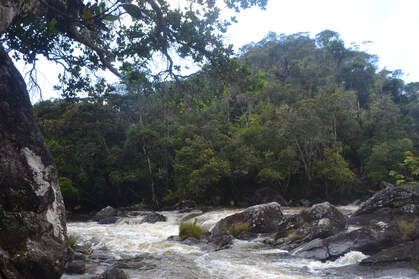 Spending an hour walking along a four kilometers trail, being a delicious food for leeches, fleas and mosquitoes, falling at least three times in the forest, and getting wet on the way back home are what come to my mind while reminiscing about my experience as a student field researcher. During one month, all of the above were some of the highlights of my everyday life, when I was on a field expedition in the rainforests of Ranomafana, in the southeastern part of Madagascar, last December. 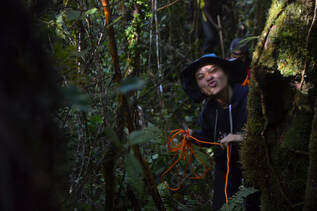 Trust me; it was so worth it and exciting. Not only were we able to collect data without any problems, but we also lived a life full of adventures, became “tourists” in our own island, and definitely learned new cultures. I am delighted to share with you the three main points that, I believe, made my experience so rich as a Malagasy student researcher. I really think that most field researchers can relate to at least one, if not all, of these. 1. We lived a life full of adventures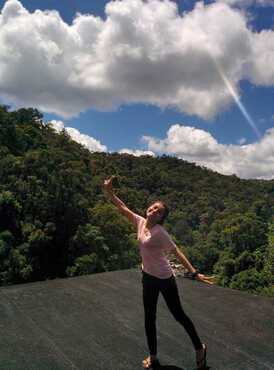 I live in Madagascar’s capital called Antananarivo, and I have grown living in my own comfort zone. I take the bus to go to school, sleep in a comfortable and pretty large bed, spend my time with friends and family during the weekend, and communicate with them via texts or calls during the weekdays. All these little comforts were nothing more than memories when I was in the field because none of these was feasible anymore. I read hundreds of stories of the lives of researchers in the field before going out there, and I remember most of them emphasized that being a researcher often means sacrificing their lives to improve biodiversity. Still, it also comes with an extraordinary adventure. What they said all made sense to me upon my arrival in the field, and I could not agree more with them. It is definitely a life full of adventures; we slept on the ground, we took a shower somewhere in the corner next to our tent, and we could not talk to our family and friends even if we wanted to call them badly because there was no phone network. In the midst of it all, though, we enjoyed being the only human beings in nature, and the idea of spending our time there to bring changes and impact our nature positively was rewarding. 2. We became “tourists” in our own island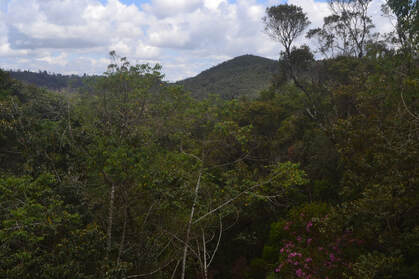 Madagascar is globally known for its endemic species; animals like lemurs, chameleons, frogs, and even plants. People travel from every corner of the globe to Madagascar to admire our unique fauna and flora; thus, being given the opportunity to connect with nature this close was a great privilege for me. Protecting these species and discovering everything about them were some of the main reasons why I chose to become a researcher and an explorer. My strong desire is even to draw my career path around research for me to improve the lives of these beautiful creatures. In the field, I was so sad to know that the locals destroy the forest. Seeing the reality in the field prompted me even more to make this dream of mine a reality. My goal is to do good work to maintain the beauty of our biodiversity. 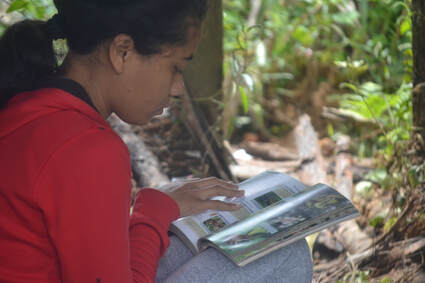 I particularly loved being a tourist in my own island. The fact that we are researchers does not mean that we cannot explore; we work and travel at the same time. The moment you come and visit our island, you will realize how powerful it is to be a student like me. Not only do you get to make the most of your life as a student researcher, but you will also get to enjoy discovering other places that you do not necessarily call “home” yet. At least for me, discovering new locations makes me love the place and its surroundings more and more each day. 3. We discovered new cultures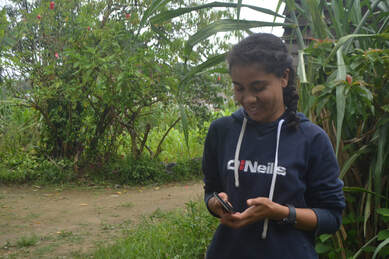 I really enjoyed living an adventure as a field researcher, and allowing myself to be a tourist in my own island as well was so exciting. Culture and language play a key role in that. Born and raised in the capital, where I grew up speaking/using the official Malagasy language in school and everyday life, I am always impressed while communicating with others outside of Antananarivo. 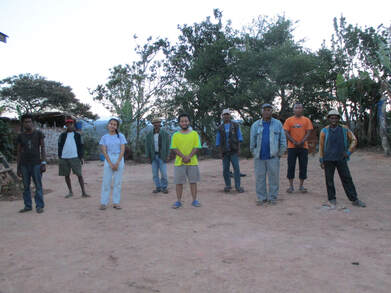 The various dialects spoken across the island show how rich our culture is. Although it is always said there is one official language on the island, our dialects somehow differ from one place to another, and from my own experience, I even noticed the choice of words, and the accent could slightly change from one village to another. Believe me, I’m a native Malagasy speaker, but there were times when I did not understand what some people in Ranomafana said (mostly Tanala and Betsileo). I was impressed by our local guides for making our communication with the local community flow smoothly, thanks to their ability to “translate” for us. Don’t get me wrong, this does not mean that we did not communicate with the community at all. At first, I personally struggled with “language barriers”, but as time went, I learned to speak the local dialect, picked a few words gradually, and, to be honest with you, I had so much fun learning this new dialect. I think my willingness to embrace the culture and learn a new dialect made my connection with the local guides stronger and has helped us work better together. I believe our respective languages should not limit us. Long story short, it was such a great experience that I look forward to continuing. I am going to the forest this week, and I can't wait to explore and enjoy new adventures! I'll share more when I'm back ... Text by Hasina Rakotoarisoa. Pictures courtesy of Hasina Rakotoarisoa, Vero Ramananjato & Finaritra Randimbiarison
Comments are closed.
|
We're using this space to share updates on our adventures in the field. Archives
May 2024
Categories
All
|
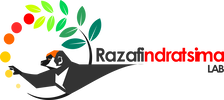
 RSS Feed
RSS Feed
